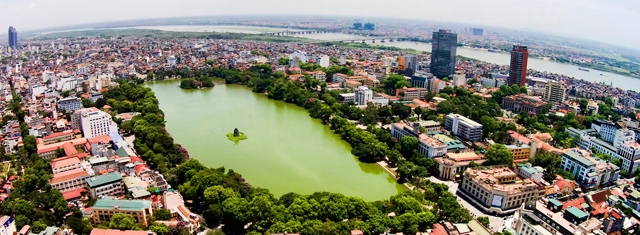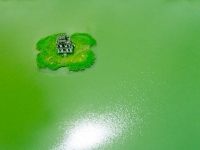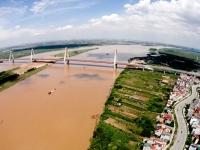Travel
Hanoi listed in top 4 happiest cities in Asian-Pacific region
Ha Noi, Vietnam

Ha Noi from the sky (Source: © 2016 Truong Anh Duc)
USPA NEWS -
Ha Noi has been selected as one of the four happiest cities in the Asian-Pacific region by MasterCard ““ a global leading company in payment. Ha Noi scored 73.3 points in terms of life satisfaction to rank second in the region, just after Myanmar´s Mandalay city (84.9 points).
Ha Noi has been selected as one of the four happiest cities in the Asian-Pacific region by MasterCard ““ a global leading company in payment.
According to the company´s recent happiness index, Ha Noi ranked fourth with 71 points behind India´s Bangalore (73.2 points), Indonesia´s Jakarta (72.1 points), and India´s New Delhi (71.7 points).
According to the company´s recent happiness index, Ha Noi ranked fourth with 71 points behind India´s Bangalore (73.2 points), Indonesia´s Jakarta (72.1 points), and India´s New Delhi (71.7 points).
The index came out as a result of a survey conducted among 9,000 people living in 33 cities in 17 countries across the region to measure the level of their life enjoyment based on four categories: job and finance, safety from threats, personal happiness, and life satisfaction.
Scores of the four factors range from zero to 100 points.
Ha Noi scored 73.3 points in terms of life satisfaction to rank second in the region, just after Myanmar´s Mandalay city (84.9 points).
The Vietnamese capital ranked fifth in the “safety from threats“ category with 64.3 points, sixth in “job and finance“ with 75.7 points, and fifth in “personal happiness“ with 70.9 points.
Scores of the four factors range from zero to 100 points.
Ha Noi scored 73.3 points in terms of life satisfaction to rank second in the region, just after Myanmar´s Mandalay city (84.9 points).
The Vietnamese capital ranked fifth in the “safety from threats“ category with 64.3 points, sixth in “job and finance“ with 75.7 points, and fifth in “personal happiness“ with 70.9 points.
Liability for this article lies with the author, who also holds the copyright. Editorial content from USPA may be quoted on other websites as long as the quote comprises no more than 5% of the entire text, is marked as such and the source is named (via hyperlink).









